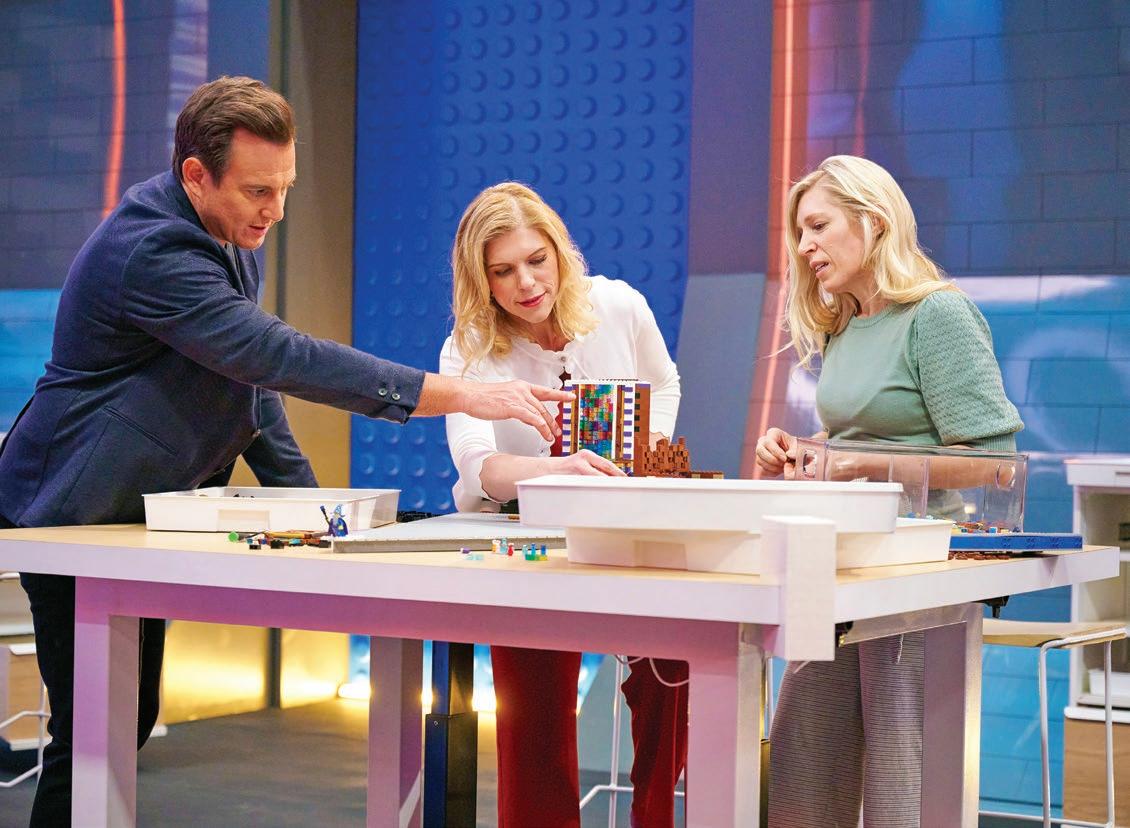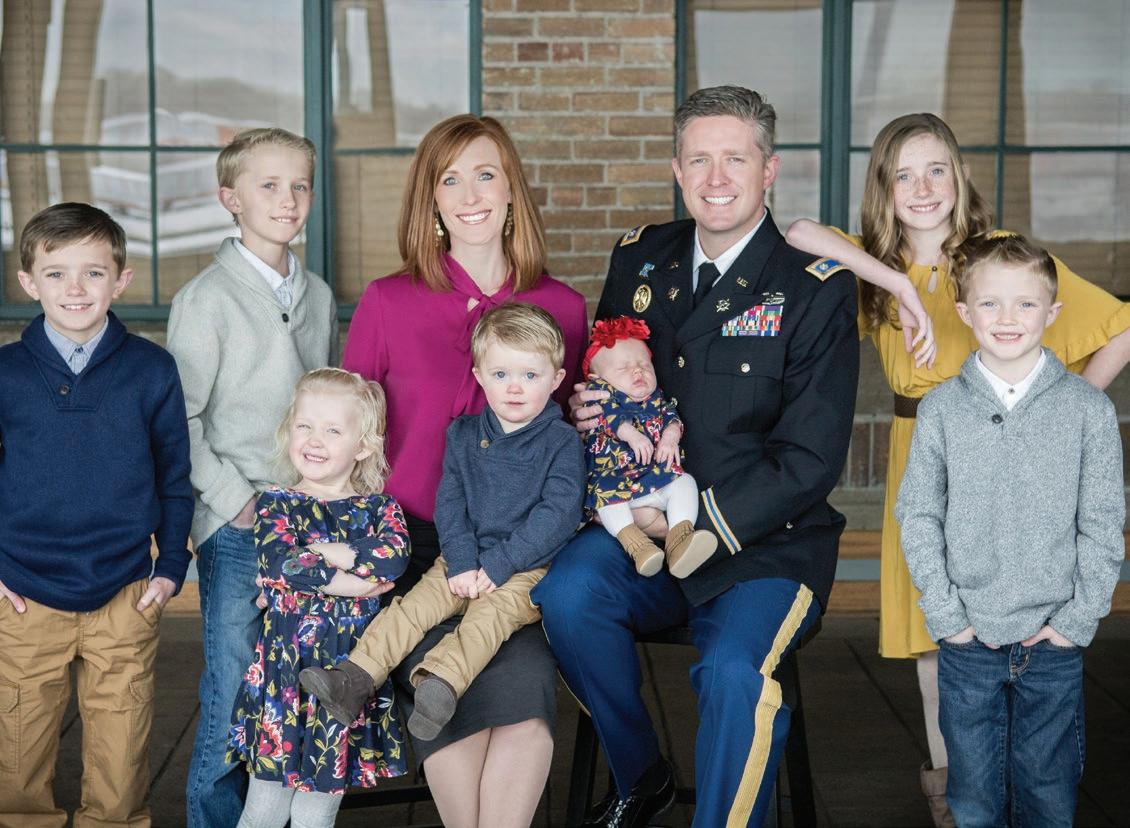
6 minute read
Helping Actors with Autism Shine
14
Fall 2021
Advertisement
utah
Helping Actors with Autism Shine
Provo filmmaker Levi Harris knows that actors with autism bring something special to his productions. And he has made it his mission to show people in the film industry that when they are more inclusive in their casting, it not only benefits the actors but the audience as well.
BY MEGAN PICKETT
Many filmmakers will cast neurotypical actors—those of typical developmental, intellectual, and cognitive abilities—to play autistic characters, like in the recently released Netflix show Atypical. It’s a show about a boy with autism played by an actor who doesn’t have autism. But unlike those filmmakers, Levi Harris recognizes the benefit of casting actors with autism for these roles—and for all roles.
a moment oF inSpiration
Harris started casting actors with autism when he was casting for his short film The Thunderbirdin 2017. The Thunderbird is about a young autistic boy
named Anderson who doesn’t act the same as other young boys and ventures through the woods with a werewolf. Throughout this adventure, the film depicts Anderson’s experience and emotions. “In the end, he finds out something about himself that maybe ‘normal’ people would never understand anyway,” Harris explains.
Because the story is about a boy with autism, Harris said that in a moment of inspiration he wondered if he would be able to cast an actor with autism to play the part. “I realized after a couple auditions that this particular story would be impossible to do without them,” he recalls. So, Harris cast a boy with autism to act in the lead role.
Harris says that he loved the unique influence and special charm that the actors with autism brought to his script while auditioning, so he cast almost all actors with autism to play roles in the film. “The first film started with a desire to share new stories using people who are seldom given the opportunity to tell those stories,” he says. “Because of that desire, my team produced one of the first and only films featuring actors on the autism spectrum.”
inCluSive CaSting
Because of the success Harris found working with autistic actors in The Thunderbird, he now casts actors with autism and other disabilities to play roles in all his films. “We reached out to actors with a history of mental and emotional illness, various learning disabilities—people who thought they would never be actors because of their conditions,” he says. “We felt that they had stories to tell, and if anyone was going to help them, we were.”
According to Harris, working with actors who have autism or other disabilities has improved his films dramatically. “I can’t even describe how powerful and talented and good these actors were at just creating these moments and being able to
capture those. I felt honored,” Harris says that he he says. Cole Squires, producer loved the unique of The Thunderbird, has also influence and special helped produce the rest of Harris’s films and says that charm that the actors working with actors who have with autism brought autism is unlike any filmto his script while making he has experienced before. “Working with actors auditioning, so he cast on the autism spectrum almost all actors with autism to play roles in definitely allowed us to include perspectives ... that were new to us—things that would have the film. been outside of our imagination if we had been concocting it ourselves.”
a Supportive environment
Harris bases most of his films on short stories that take place in a literary universe called Anotherworld, which he created with co-author John Cornish. One of his films, Ziggy, also within this universe, was written as a prequel to The Thunderbird and follows the character Ziggy on her own adventures through the woods before meeting Anderson. The actress, who goes by Ziggy Fauske,
Fall 2021
15
utah

Fall 2021
16

utah lives in Kaysville and is on the autism spectrum. She also played a role in The Thunderbird. She said the experience of acting in Harris’s films, though intimidating, has helped her togrow.
“At first, I was nervous because it was one of the bigger things I did. Yeah, it was a small-time indie film, but it was still a film, so I was really nervous at first,” she says. “But I think once I got on set and met Levi and Cole and all the other people like me, I felt at home. I felt like I was back with people I can relate to in a really friendly and supportive environment. And acting with them and being a part of the film kind of revitalized me and gave me energy. It just made me feel a lot better.”
Fauske hopes that these films will inspire more directors to cast actors with autism. “The cast was predominantly autistic—almost everyone was somewhere on the spectrum. And I really want to see that in movies and films more, especially ones that are about autism.”
Harris also wrote a short film called Pirate Party and predominantly cast actors on the autism spectrum. Eric Casper, an autistic actor from Riverton, was among those cast, and the film was his first opportunity to act outside of theater. Most of the lines in Pirate Party were improvised, and while Casper normally has a hard time getting out his words, he says, “Levi helped me get out what I needed to get out and helped to show me the potential I had. I was able to come up with all this great dialogue.”
a Bright Future
Casper hopes that these films will help those who are on the autism spectrum to accomplish great things and to be recognized. He also hopes that these experiences will help parents who have kids on the autism spectrum. “Hopefully, it will be a ground [for parents of children on the autism spectrum] for not worrying about their kids being diagnosed—that it won’t be the “I felt like I was back end, but that [their kids] can with people I can relate be successful,” he says. “We definitely have something. to in a really friendly And Levi saw what we could do.” and supportive environment. And “People with autism have important things to say—not just as individuals on the acting with them and spectrum but as human beings being a part of the film with unique experiences,” says Harris. “I believe that giving kind of revitalized me them the opportunity to do and gave me energy.” so will lead us to new creative vistas. It will change things. ... Actors on the spectrum will find safe places to tell their stories, and it will open the way for others who have been forgotten, neglected, and cast out in stepping forward and realizing that the world wants their stories, too.” Harris is in the process of making his company, Anotherworld Stories, Inc., a nonprofit 501(c)3 organization. He is currently working on a film titled Molly and plans to make more films that cast neurodiverse actors. To support him in his cause, you can purchase his book, Stories from Anotherworld, at anotherworldstories.com or amazon.com. It is available as an eBook or a paperback, and 100 percent of the proceeds go toward helping actors on the autism spectrum.
INCREASE SALES | RECRUIT TALENT | BUILD CULTURE
www.theadventgroup.net











